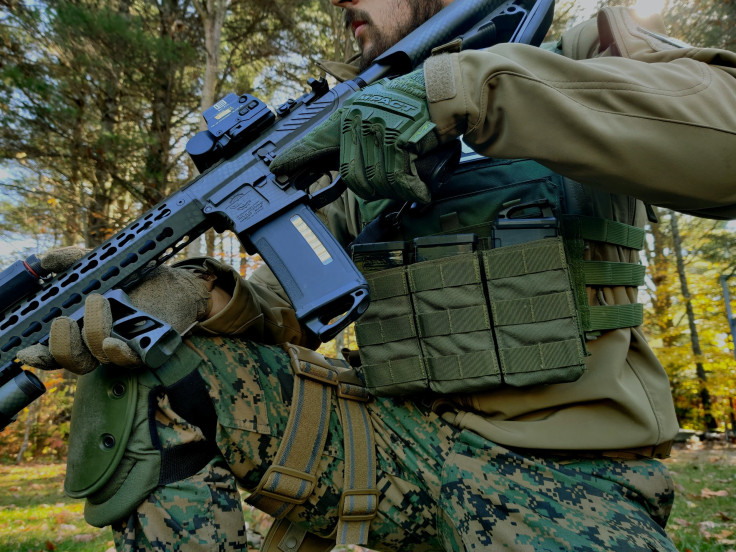
Khartoum is not accustomed to war in contrast to other regions of the nation, such as the sometimes-tumultuous western Darfur region. People in the capital are witnessing these fights for the first time.
Khartoum's streets were largely devoid of people and transportation on Sunday, as both sides of the conflict erected roadblocks.
However, large lines developed at bakeries and the few open stores as some individuals made brief forays outside to buy food before heading back inside to safety.
There was a three-hour break in the fighting in the afternoon to allow the injured to be transported to a hospital and the thousands of people who were under lockdown to move.
Residents were shocked, but they were also furious.
The Sudanese doctors' union said that at least 23 people had died in the city early on Monday, but after two days of violence, the actual toll is probably greater.
Kholood Khair, a native of Khartoum, told the BBC that there was no place where people could feel comfortable.
"All civilians have been urged to stay at home, but that has not kept everyone safe," she said.
"There are lots of people either being in their homes or being sort of in and around their homes, on the rooftops, in the gardens et cetera, that have been either hurt or killed by a stray bullet."
One of the victims was an Indian national named Albert Augestine who was working on Saturday in Sudan when he was struck by stray gunfire, according to the Indian embassy.
The city was nonetheless shaken by intense fighting and explosions, even in areas controlled by the Rapid Support Forces (RSF), demonstrating that their claim to control 90% of Khartoum was not entirely supported.
A researcher and policy analyst at the Tahrir Institute for Middle East Policy in Khartoum, Hamid Khalafallah, told the BBC that it appeared as though the Sudanese military was targeting targets within the city.
"We woke up to sounds of very heavy gunfire and bombings, in some cases even louder than yesterday," he said, adding that jet fighters had been heard overhead.
"Basically, the Sudanese armed forces are trying to target locations where the Rapid Support Forces' militia are located."
Ms. Khair claimed that the RSF fighters had ensconced themselves in heavily populated areas and that the Sudanese military had informed locals that they would be searching neighborhoods for them.
She expressed concern that this would lead to "indiscriminate killing".
Since the battle began on Saturday morning, Katharina von Schroeder of Save the Children had been confined to a school in the city, Khartoum.
"Every time we thought that it's calming down then suddenly there is another noise," she told the BBC. "The strongest explosions were this morning when we also saw some air force being deployed, or fighter jets, and we decided to go down to the basement for about an hour."
Fighting has been going on all over the country, from Port Sudan on the Red Sea coast in the east to Darfur in the west, where three World Food Programme (WFP) employees were killed.
n Port Sudan, residents woke up to explosions, but later in the day said things seemed to have quietened down.
"I woke up to the sound of fighter jets hovering above my neighbourhood. Seeing the planes in the sky the RSF started targeting them with anti-aircraft missiles. The land was shaking, literally. Again my whole family gathered in one room. We were really scared," Othman Abu Bakr said.
But the fighting eventually stopped, and Mr. Abu Bakr claimed that when he stepped outside, he witnessed army personnel dancing in the streets.
Hospitals in Khartoum have been complaining of a lack of doctors and equipment as they struggle to handle the increasing number of injuries.
The people of Khartoum are unsure whether they will have anything to celebrate when the holy month of Ramadan ends, and the festival of Eid al-Fitr begins on Friday.
Days of tension existed before to the outbreak of violence as RSF members were redeployed across the nation, which the army viewed as a danger.
People were unable to follow their customs of celebrating and praying at the end of each day's extended fast as a result of these tensions, which disrupted the typical rhythm of socializing during Ramadan.
People often travel a lot during the Eid celebration to visit family, neighbors, and close friends, but all of that is uncertain this year.
People are angry with the two military leaders at the center of the conflict, RSF leader Gen. Mohamed Hamdan Dagalo and army chief Gen. Abdel Fattah al-Burhan, while they wait for a resolution.
Plans for a changeover from military to civilian control caused their conflict to start.
However, many Sudanese currently prefer peace and stability to democracy.
© 2025 Latin Times. All rights reserved. Do not reproduce without permission.




